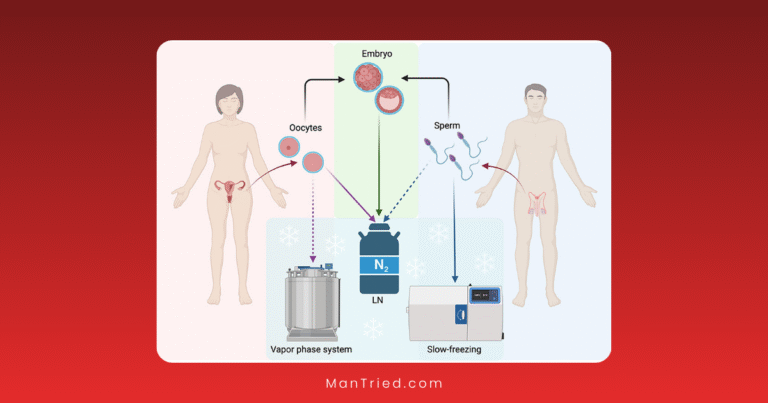Cardiovascular Health and Sexual Function in Your 60s and Beyond

The conversation around aging has evolved dramatically in recent decades. Today’s 60+ generation is redefining what it means to grow older, with many maintaining active, fulfilling lives well into their golden years. Yet one aspect of wellbeing that often goes undiscussed is the intricate relationship between cardiovascular health and sexual function—two elements of health that become increasingly interconnected as we age.
The Heart-Sex Connection: More Than Just Metaphorical
The link between heart health and sexual function is fundamentally physiological. Both rely heavily on proper blood flow, healthy blood vessels, and optimal nervous system function. As research published in PMC confirms, these systems don’t operate in isolation but rather influence each other in profound ways.
“The vascular system is essentially one connected highway,” explains Dr. Elizabeth Chen, cardiologist at Riverside Medical Center. “The same factors that affect blood flow to the heart affect blood flow to the genital region. This is why cardiovascular issues often manifest in sexual function before they cause chest pain or other obvious cardiac symptoms.”
This connection is particularly relevant for adults in their 60s and beyond, as both cardiovascular disease risk and sexual health concerns increase with age.
Understanding the Statistics
The numbers tell a compelling story about both the challenges and opportunities:
- According to the North American Menopause Society, 37% of women over 65 and 10% of women over 85 remain sexually active
- Approximately half of men with confirmed coronary artery disease experience erectile dysfunction
- Sexual dysfunction is reported in 55% of men and 29% of women with cardiac conditions
- Heart-related concerns cause 25% of individuals to cease sexual activity after a cardiac diagnosis
Yet perhaps most encouraging is this finding: regular sexual activity has cardiovascular benefits comparable to moderate exercise, potentially improving heart health when practiced safely.
How Cardiovascular Health Affects Sexual Function
For Men
The connection between cardiovascular health and male sexual function is well-established:
- Erectile Dysfunction as an Early Warning Sign
Erectile dysfunction (ED) often serves as a canary in the coal mine for cardiovascular disease, typically preceding other cardiac symptoms by approximately three years. The reason is straightforward: the blood vessels in the penis are smaller than those in the heart, so they show damage from atherosclerosis (plaque buildup) earlier.
- Shared Risk Factors
The same factors that damage cardiovascular health directly impact sexual function:
- Hypertension damages blood vessel linings
- Diabetes affects both blood vessels and nerve function
- High cholesterol contributes to arterial plaque
- Smoking reduces blood flow throughout the body
- Medication Effects
Some medications prescribed for cardiovascular conditions, particularly certain beta-blockers and diuretics, can negatively impact erectile function. However, newer medications often have fewer sexual side effects, and alternatives are frequently available.
For Women
While less extensively studied, the cardiovascular-sexual connection is equally important for women:
- Vascular Response and Arousal
Female sexual arousal depends on healthy blood flow to genital tissues. As noted in research from PubMed, “Endothelial function and proper arterial blood flow through hypogastric and pudendal arteries are critical for a normal vasculogenic response to sexual stimulation in women.”
- Hormonal Interactions
The post-menopausal decline in estrogen affects both cardiovascular risk and sexual function. Estrogen helps maintain blood vessel flexibility and genital tissue health, with its decline potentially impacting both systems simultaneously.
- Psychological Factors
Anxiety about cardiovascular health can significantly impact sexual desire and satisfaction. Studies show that fear of triggering a cardiac event during sexual activity is common, particularly after a diagnosis or cardiac event.
Is Sexual Activity Safe with Cardiovascular Conditions?
This question concerns many older adults, particularly those with diagnosed heart conditions. The good news? For most people, sexual activity is not only safe but potentially beneficial.
According to guidelines from the Princeton III Conference:
- Individuals with low cardiac risk can safely engage in sexual activity
- Those who can achieve 3-5 METs (metabolic equivalents) during exercise testing can typically handle the cardiovascular demands of sexual activity
- After a heart attack, most patients can return to sexual activity within 3-4 weeks if their stress test is negative
“The actual risk of triggering a cardiac event during sexual activity is remarkably low,” notes Dr. Michael Rothberg, preventive cardiologist. “Studies estimate only 2-3 cases per 10,000 people per year associated with one hour of sexual activity weekly.”
Improving Both Systems Simultaneously
The encouraging news is that many of the same strategies that improve cardiovascular health also enhance sexual function. Consider these evidence-based approaches:
1. Regular Physical Activity
Exercise improves blood flow, reduces inflammation, helps maintain healthy weight, and boosts mood—all factors that benefit both cardiovascular and sexual health.
Research indicates that:
- 150 minutes of moderate aerobic activity weekly significantly reduces cardiovascular risk
- Strength training twice weekly helps maintain muscle mass and supports hormonal balance
- Even light activity like walking can improve erectile function by up to 30%
2. Heart-Healthy Nutrition
The Mediterranean diet, rich in fruits, vegetables, whole grains, lean proteins, and healthy fats, has been shown to:
- Improve endothelial function (the lining of blood vessels)
- Reduce inflammation throughout the body
- Support healthy cholesterol levels
- Potentially improve sexual function in both men and women
3. Stress Management
Chronic stress affects both cardiovascular health and sexual function through several mechanisms:
- Elevated cortisol (stress hormone) levels
- Increased inflammation
- Sleep disruption
- Psychological barriers to intimacy
Techniques like mindfulness meditation, deep breathing exercises, and adequate sleep can benefit both systems.
4. Medication Review
If you’re experiencing sexual difficulties and take medication for cardiovascular conditions, a conversation with your healthcare provider might be warranted. Sometimes adjustments can be made:
- Switching to a different medication in the same class
- Adjusting dosages
- Adding medications that support sexual function without compromising cardiovascular health
Gender-Specific Considerations
For Men in Their 60s and Beyond
- Speak up about ED: Rather than viewing it as an inevitable part of aging, recognize it as a potential cardiovascular warning sign
- Consider cardiac risk before ED treatments: The American College of Cardiology/American Heart Association guidelines recommend cardiac risk assessment before starting ED medications
- Know that treatments are safe for most: PDE5 inhibitors (like sildenafil) are generally safe for men with stable cardiovascular disease who aren’t taking nitrates
For Women in Their 60s and Beyond
- Address vaginal changes: Decreased estrogen can lead to vaginal dryness and discomfort, which can be safely treated with topical products
- Maintain perspective on distress: Research shows that while older women experience sexual dysfunction at rates similar to midlife women, they report less distress about these changes
- Consider hormonal options: For women without contraindications, various hormonal treatments can address sexual concerns while considering cardiovascular impact
Breaking the Silence: The Importance of Communication
Perhaps the greatest barrier to addressing these interconnected health concerns is the reluctance many older adults feel about discussing sexual health with healthcare providers.
“Many of my patients in their 60s, 70s, and beyond are surprised when I bring up sexual health during their cardiac check-ups,” says Dr. Chen. “But these conversations are essential for comprehensive care. Sexual health isn’t just about pleasure—it’s an important indicator of overall vascular health and quality of life.”
Healthcare providers increasingly recognize the importance of initiating these conversations, but patients shouldn’t wait for them to do so. Bringing up concerns about sexual function in the context of cardiovascular health is appropriate and important.
The Path Forward: Integrated Wellbeing
The connection between cardiovascular health and sexual function represents both a challenge and an opportunity for adults in their 60s and beyond. By understanding this relationship and taking proactive steps, older adults can often address both aspects of health simultaneously, maintaining quality of life and intimacy into their later years.
The most important takeaway? Neither cardiovascular disease nor sexual dysfunction should be accepted as inevitable consequences of aging. With the right approach—combining lifestyle modifications, open communication with healthcare providers, and appropriate medical interventions when necessary—adults can maintain both heart health and sexual wellbeing throughout life.
As we continue to redefine aging in the 21st century, perhaps it’s time to include sexual health as part of the conversation about healthy longevity—not as a luxury, but as an integral component of overall wellbeing that both reflects and contributes to cardiovascular health.
Have you found that changes in physical activity or diet have affected both your cardiovascular health and sexual wellbeing? Share your experiences in the comments below.






